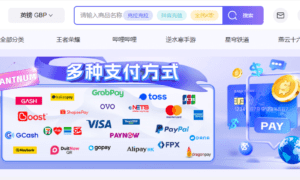Introduction
In today’s globalized economy, International Payments are the lifeblood of trade. Businesses now connect with suppliers, partners, and customers across continents. However, traditional methods of transferring money have long been a source of frustration — slow, expensive, and burdened by complex banking procedures.
As we approach 2025, the financial world is witnessing a major transformation. Modern technology is redefining how companies send and receive money globally, offering speed, security, and simplicity like never before.
The Growing Need for Smarter International Payments
Global trade continues to expand at record speed, and businesses require faster and more reliable ways to transact across borders. Unfortunately, conventional banking systems have not kept pace. Transfers can take several days, incur heavy fees, and rely on outdated processes that no longer fit the modern pace of business.
To stay competitive, forward-thinking companies are adopting next-generation solutions that simplify International Payments, minimize costs, and ensure real-time delivery.
The Hidden Cost of Outdated Payment Systems
For decades, companies depended on traditional banks to move money across borders. The process often meant waiting days for transactions to clear and paying steep fees due to poor exchange rates and intermediary bank charges.
Many organizations also had to pre-fund foreign accounts — locking up precious capital that could have been better used for growth, marketing, or innovation. This inefficiency became a major obstacle for scaling businesses and startups alike.
A New Era: Digital Transformation in International Payments
The financial landscape has shifted dramatically with the arrival of fintech innovations and blockchain-based systems. Modern payment platforms are designed for the global economy, enabling near-instant transactions at a fraction of the traditional cost.
Key Benefits Include:
-
Instant Settlement: No more waiting days for funds to clear — payments process within minutes.
-
Multi-Currency Support: Businesses can send and receive funds in multiple currencies with transparent, real-time exchange rates.
-
Lower Fees: Cutting out intermediaries means reduced costs and more profit retained per transaction.
These features give businesses an undeniable edge in the fast-paced global marketplace.
Unlocking Cash Flow Flexibility
One of the most impactful advantages of modern International Payments is improved liquidity management. With new digital platforms, companies no longer need to maintain pre-funded accounts in multiple currencies.
Funds can be sent directly from one central account, freeing up working capital and enhancing cash flow flexibility. This newfound agility allows businesses to reinvest in growth, scale faster, and seize opportunities as they arise — without being held back by outdated financial practices.
Fortified Security for Peace of Mind
When money moves globally, security is non-negotiable. Modern payment systems combine advanced encryption, AI-driven fraud detection, and compliance with major global standards such as SOC 2, GDPR, and PCI DSS.
Every transaction is verified, recorded, and traceable — ensuring maximum transparency and reducing the risk of fraud or errors. Businesses can now send funds confidently, knowing their assets are fully protected at every step.
International Payments as a Competitive Advantage
In the global business landscape, speed and trust are everything. Companies that embrace advanced International Payment solutions gain a strategic advantage over competitors still relying on legacy banking systems.
With faster settlements, they can maintain better relationships with international partners, avoid costly delays, and operate efficiently across borders. Many platforms now also integrate features like invoicing, ACH transfers, and virtual cards — creating an all-in-one financial ecosystem.
Driving Global Efficiency Through Automation
Digital payment tools aren’t just about speed — they’re about efficiency. Automated processing eliminates human error, while integrated analytics provide instant insights into cash flow. Businesses can easily sync transactions with their accounting software, making financial management smoother than ever.
Mobile-friendly platforms also mean payments can be managed from anywhere — a vital capability in today’s remote and digital-first world.
Cost Savings That Empower Growth
By cutting out unnecessary intermediaries and reducing conversion losses, modern International Payments save businesses significant amounts each year. These cost efficiencies translate into higher margins, improved reinvestment capacity, and stronger global competitiveness.
Sustainability and the Future of Cross-Border Finance
Digital payment ecosystems also contribute to sustainability. Paperless transactions, reduced energy consumption compared to traditional banking, and smarter resource allocation align with the modern corporate focus on eco-friendly operations.
As the technology continues to evolve, we can expect even more seamless integration between global finance, blockchain, and AI-driven decision-making.
Conclusion: The Future Belongs to Smart Payment Innovators
The future of International Payments is fast, secure, and borderless. Businesses adopting modern fintech solutions are not just keeping up — they’re staying ahead. With improved speed, reduced costs, and enhanced security, global trade becomes smoother and more profitable than ever before.
Companies that embrace these innovations today are building the financial foundation of tomorrow — one where payments cross borders as effortlessly as information does.
FAQs
1. Why are businesses moving to digital International Payment platforms?
Because they’re faster, more secure, and far more cost-effective than traditional banking systems.
2. How secure are modern International Payment solutions?
They use end-to-end encryption, fraud detection AI, and global compliance certifications to ensure safety.
3. Can small businesses benefit from digital International Payments?
Absolutely — these systems are designed for scalability and are cost-efficient for companies of all sizes.
4. What technologies are shaping the future of global payments?
Blockchain, artificial intelligence, and API-driven platforms are revolutionizing cross-border transactions.
5. What’s the biggest advantage of adopting modern payment systems?
Flexibility — faster cash flow, real-time settlements, and the freedom to grow globally without financial barriers.



































